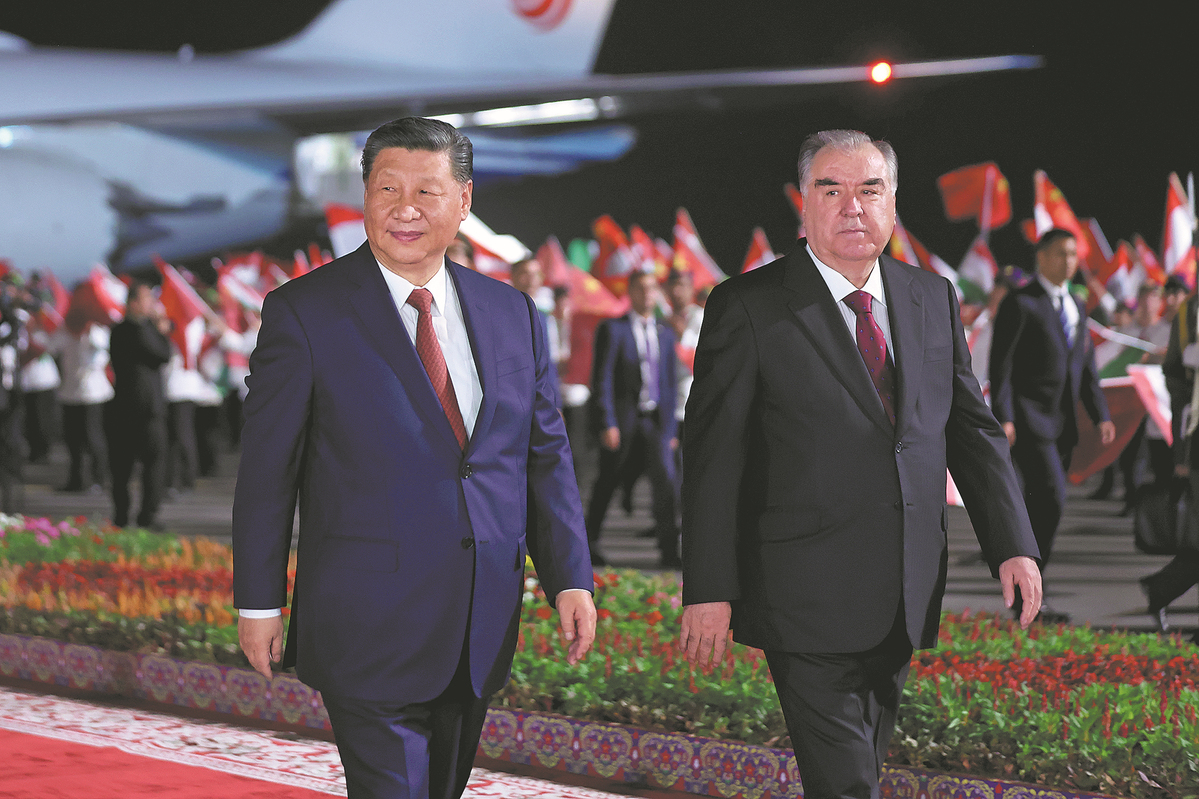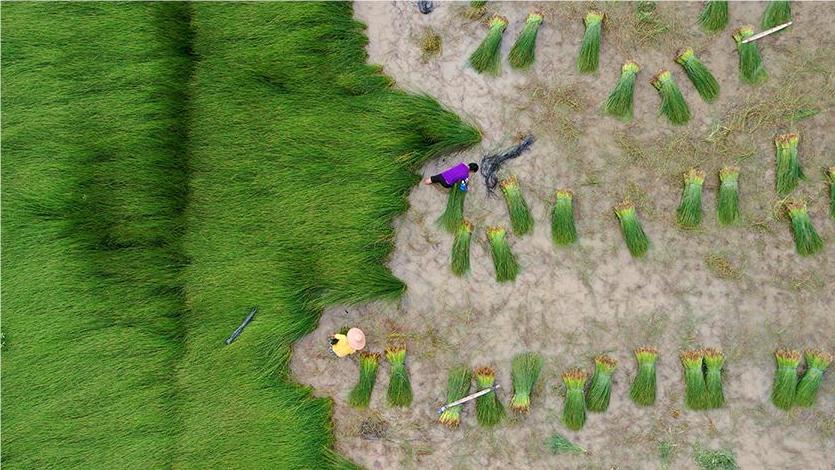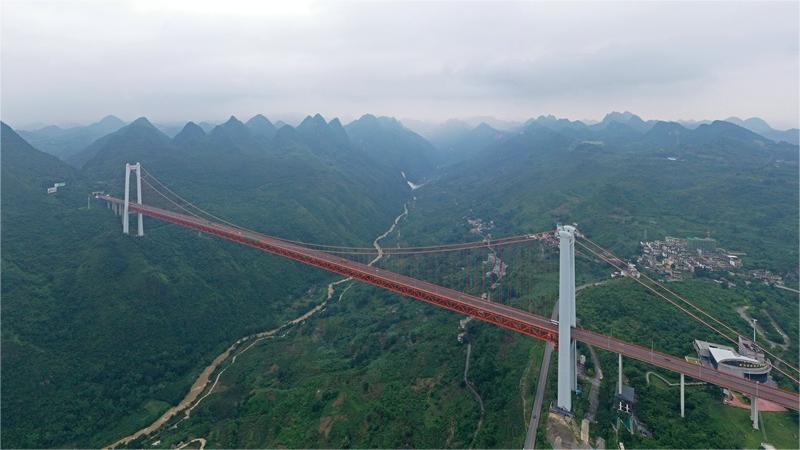Key visit heralds new era of Sino-Tajik ties

President Xi Jinping attends a welcoming ceremony hosted by Tajik President Emomali Rahmon at Dushanbe airport, Tajikistan, on Thursday. (WANG ZHUANGFEI/CHINA DAILY)
President Xi Jinping's state visit to Tajikistan will usher in a new era of bilateral cooperation between Tajikistan and China, a senior Tajik official said, noting that the enduring bond between the two neighbors dates back to the historic exploration of Central Asia by imperial envoy Zhang Qian over 2,000 years ago.
Xi arrived in Dushanbe, the capital of Tajikistan, on Thursday night after attending the 24th Meeting of the Council of Heads of State of the Shanghai Cooperation Organization in Astana, Kazakhstan.
Xi, who is on his first state visit to Tajikistan in five years, was offered a grand welcome upon his arrival at the airport. The ceremony featured a guard of honor, the red carpet greeting, and a folk art performance.
Farhod Rahimi, chairman of the Committee on Coordination of Activities of the National Assembly of the Supreme Assembly of the Republic of Tajikistan, said the two countries forged a comprehensive strategic partnership in 2017 under the strategic guidance and direct promotion of the two heads of state during Tajik President Emomali Rahmon's state visit to China.
Calling the bilateral relationship a prime example of amicable neighborly ties and genuine cooperation between nations, Rahimi underlined the two countries' deep historical roots, consistent growth in ties, and successful collaboration over the years.
The advancement of Tajikistan-China relations is a key focus area and strategic objective within Tajikistan's foreign policy framework, Rahimi said.
The friendly exchanges and collaborative efforts between the National People's Congress, China's top legislature, and the Majlisi Milli, the National Assembly of Tajikistan, have significantly contributed to strengthening mutual trust, fostering extensive exchanges, and establishing a legal framework that supports practical bilateral cooperation in various fields, he said.
Tajikistan and China have reached a range of cooperation agreements, encompassing politics, economics, science, education, trade, investment, energy, and healthcare. Such collaboration has solidified China's position as one of Tajikistan's foremost and crucial partners.
Rahimi said that Tajikistan was one of the first countries to support the China-proposed Belt and Road Initiative, and is facilitating the comprehensive alignment of its National Development Strategy for the period up to 2030 with the BRI.
Bilateral trade volume between the two countries reached $3.926 billion in 2023, a year-on-year increase of 53.5 percent, according to data from the Chinese Foreign Ministry.
"The cooperation in advancing the BRI has borne significant fruit, providing crucial technical and financial assistance for our infrastructure development. This partnership has played a vital role in fostering the progress and prosperity of Tajikistan," Rahimi said.
For example, Tajikistan's infrastructure development had been largely dependent on cement imports for many years until the Chzhungtsai Mohir Cement joint venture with Chinese investors and other projects under the BRI transformed the nation into a cement exporter, he said, adding that the mining industry in Tajikistan is also growing.
Such projects "have instilled a heightened sense of confidence among Tajik people in realizing our objectives for industrialization", he said.
Rahimi, who is also president of the Tajik Academy of Sciences, said he has been paying great attention to the scientific and technological cooperation between Tajikistan and China.
The two countries have jointly established a Tajik-Chinese food safety testing and research laboratory, which uses equipment and supplies sourced from China, while Chinese experts provide training for Tajik technicians, he said.
Researchers from both countries are also actively engaged in studying together the feasibility of artificial propagation of vegetation in dry regions, Rahimi said.
"People-to-people exchanges have effectively strengthened our mutual trust. At present, there are about 2,000 Tajik students studying in Chinese universities," he said.
The two nations have engaged in collaborative endeavors encompassing archaeological initiatives, climate change studies, biodiversity preservation, disaster relief efforts, and various other projects.
"The steady advancement of Tajik-China relations is of great significance, reflecting a widespread consensus among all sectors in Tajikistan. We are willing to further work together with our Chinese partners," he added.
Xu Wei in Dushanbe contributed to this story.
Photos
Related Stories
- Luban Workshop grooms talents for Tajikistan's industrialization, modernization
- Xi calls for bolstering SCO unity, cooperation
- Xi's Central Asia trip pushes for China's stronger bond with regional countries
- President Xi's Silk Road Stories: Mutual benefit driving China-Tajikistan cooperation
- Xi attends "SCO+" meeting
- Xi warns SCO members of real threat from Cold War mentality
Copyright © 2024 People's Daily Online. All Rights Reserved.









